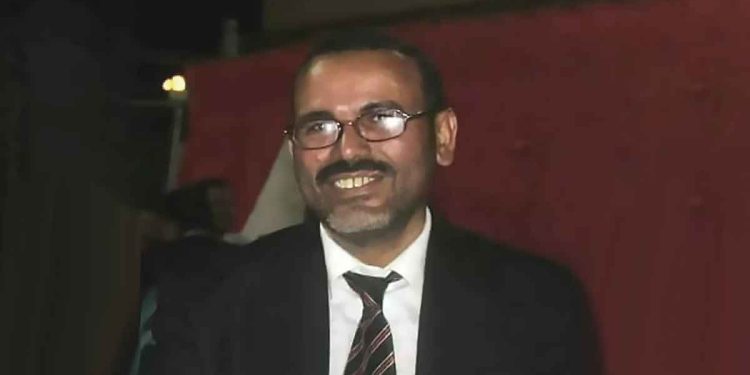The imprisoned lawyer Ali Abbas Barakat died of medical negligence after being left unconscious for two days in his prison cell before being transferred to intensive care.
Barakat’s wife affirmed that her husband was subjected to a complete hepatic coma on June 10, and was transferred completely unconscious to Badr Prison Hospital, as a result of his deteriorating health condition caused by an infection with Hepatitis C.
She explained that he felt tired two days ago, but he was kept in his prison cell without any medical care, despite suffering from liver disease.
Barakat’s family was prevented from visiting him or meeting him in court as he was unable to attend the court session due to his difficult health condition.
Barakat has been arbitrarily imprisoned pending case No. 670 of 2022 since December 2016. Several verdicts were issued against him in multiple cases, but he appealed all the verdicts, and his appeals were accepted, resulting in his acquittal. The latest verdict in his favor was issued in May 2022.
Following Barakat’s recent acquittal, he was transferred from Wadi El Natrun Annex Prison on June 17, 2022, to Bandar Shibin Al-Kom Police Station, and then to Menouf Police Station in preparation for his release.
However, his family was surprised by his return to Shibin Al-Kom Police Station, where he disappeared again since being brought back to the station on June 22, 2022.
He reappeared at the Supreme State Security Prosecution in Cairo on July 7, 2022, under case number 670 of 2022, where he was accused of joining a terrorist group.
Barakat is the 17th prisoner to breathe his last in Egyptian custody since the start of the year, mostly due to medical negligence.
Inhumane detention conditions have long plagued Egypt’s prisons, adversely affecting prisoners’ rights to adequate medical treatment and health care.
In 2022, 52 prisoners died in Egyptian custody due to medical negligence policies and very poor detention conditions.
The International Covenant on Civil and Political Rights states that all persons deprived of their liberty shall be treated with humanity and with respect for the inherent dignity of the human person.






























